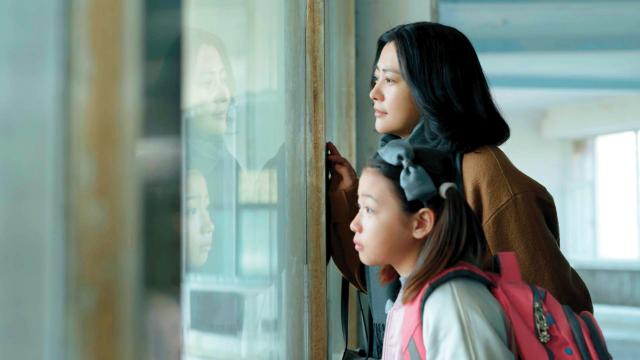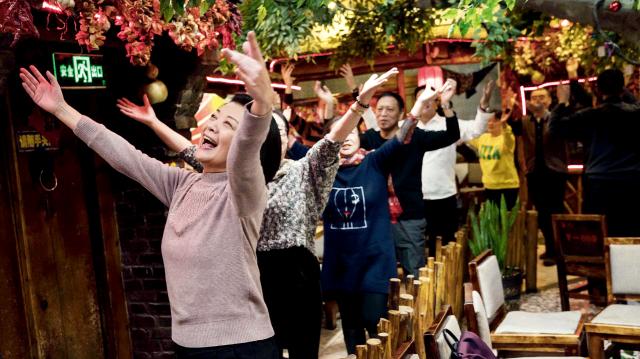“Your relationship with your mother defines your relationship with the world,” is the tagline on the poster for Spring Tide.
The story revolves around the conflicts between three generations of women. Guo Jianbo (Hao Lei) is a single mother and journalist who lives with her daughter and mother in a cramped apartment to save money. Her mother, pensioner Ji Minglan (Jin Yanling), is active in the community where she is known as a warm and friendly lady who hosts a regular singing contest. But to her family, Ji is a domineering and irritable woman who constantly vents her frustrations on her only daughter. She often curses Guo’s ex-husband and belittles her in front of her young daughter. Guo has borne her mother’s verbal abuse silently for nearly four decades. In the meantime we see Guo Wanting, the protagonist’s 9-year-old daughter (Qu Junxi), learn to adjust to the long-standing resentments in the family. As the story unfolds, the grandmother uses the girl as a weapon against Guo Jianbo.
While each character has her own methods of escaping reality, nasty clashes are inevitable. A particularly fierce confrontation puts the grandmother Ji Minglan in hospital.
In the film, the family matriarch and her daughter Guo Jianbo represent different eras of Chinese history. Ji was married during the Cultural Revolution (1966-1976) and still embodies the collective spirit of her youth. She enjoys organizing events with the older residents in the community and singing Mao-era songs.
Guo, who grew up during the relatively liberal 1980s, is a disillusioned idealist working for a newspaper. She often reports on social issues, many of which bring her heartbreak and sorrow.
Director Yang Lina said she grew up with a mother like Ji. Every time she goes home to visit, Yang counts the days. “If I stay with my mother for more than three days, a war will inevitably break out,” Yang told NewsChina. To avoid conflicts with her mother, Yang said she usually keeps quiet. “If the atmosphere at home was too much to take, I would escape to a nearby cafe and cry for an hour,” she said.
But Yang said motherhood has provided her with some insights. “I know where my mom’s anger comes from. She endured so much injustice during her younger years. That resentment accumulates. She lets it out on the ones closest to her,” Yang said.
Some of the movie’s dialogue is taken directly from conversations between Yang and her own daughter. Yang swears she will not make the same mistakes her mother did raising her. Now 17, her daughterloves horseback riding and plans to study art in Germany. She is also Yang’s first reader for her screenplays.
Yang describes these family issues as “burdens handed down from generation to generation,” adding that no matter how fiercely a daughter rebels against her mother, she still feels her influence.
The parent-child relationship and other family issues explored in Spring Tide struck a chord with the film’s production team. “I saw myself in the story,” producer Li Yaping told our reporter.
Hao Lei, who plays Guo Jianbo, also related to the story. “I left home at 15 for Shanghai, where I studied acting and started my career. It seems like I’m forever 15 in my mother’s eyes and never grew up. I think I’m suited for the role of Guo Jianbo. I can truly understand how communication and understanding can feel impossible between a mother and daughter,” Hao said.

 Old Version
Old Version


